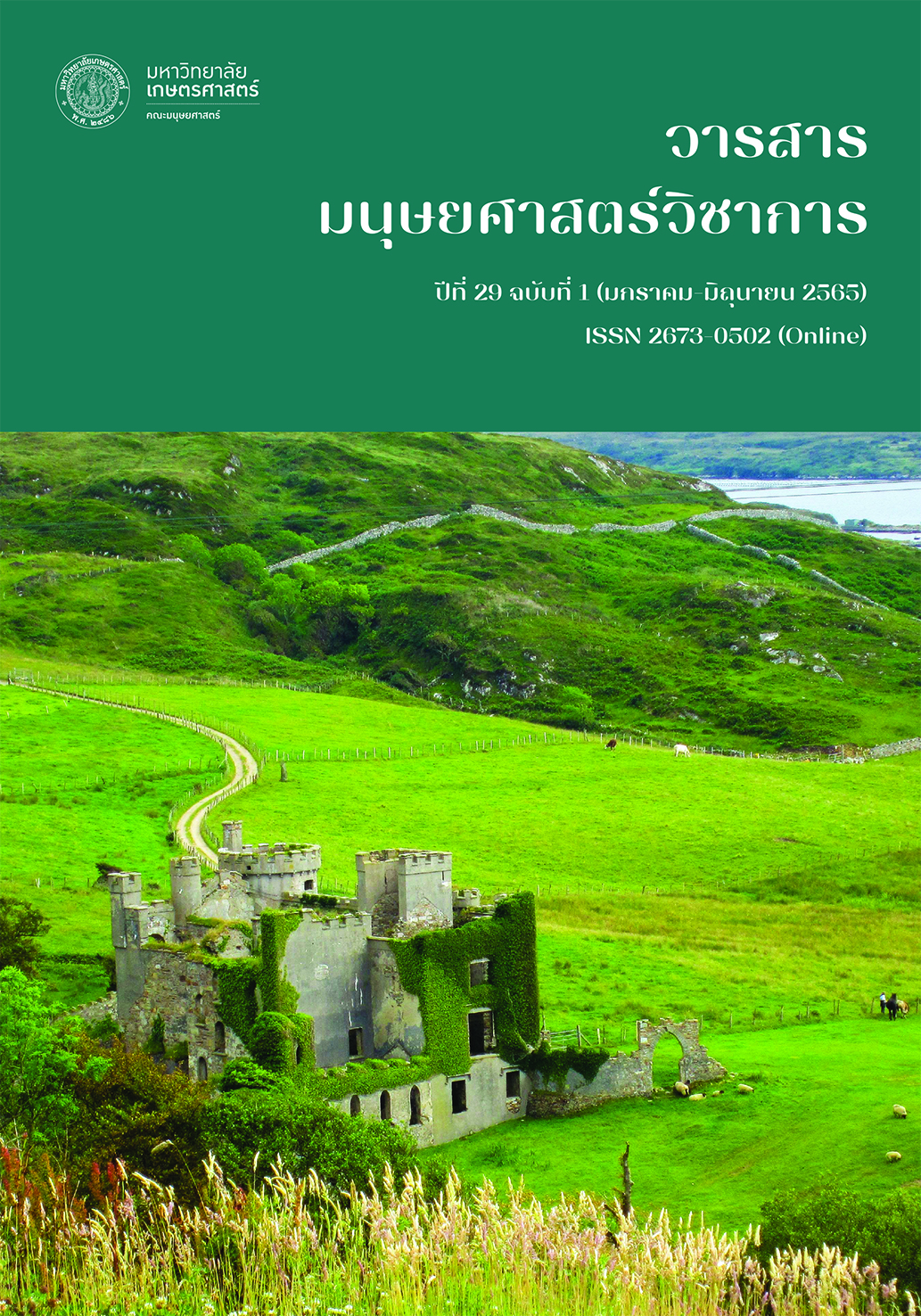The Reconceptualization of Learning English between Native and Non-Native English-Speaking Teachers through the Lenses of Post-Colonialism for EMI Policy in Thailand
Main Article Content
Abstract
This paper aims to shed light on the impact of post-colonialism on English language learning and misconceptions about non-native English-speaking teachers (NNESTs), as well as to suggest all stakeholders, particularly the policymakers who determine English language learning policies in Thailand, in order to increase awareness among stakeholders who are compatible with English Medium Instruction (EMI) policy and bilingual curriculums in Thailand. This paper employs the binary terms of native English-speaking teacher (NEST) and non-native English-speaking teacher (NNEST) to reinterpret misunderstanding regarding Thailand’s bilingual education policy, which leads to discrimination against English language learners and limited access to English language learning. Finally, Gramsci’s decolonization is proposed as solution for all stakeholders, especially those who are involved in Thai education, in order to re-examine the English language teaching policy, decrease social inequality, and to increase Thai people’s understanding toward English language teaching and learning. The solutions are the reconceptualization of non-native English-speaking teachers, the understanding and acceptance of the nature of second language users, and the development of the content based on the local context.
Article Details

This work is licensed under a Creative Commons Attribution-NonCommercial-NoDerivatives 4.0 International License.
References
Ashcroft, B., Griffiths, G. and Tiffin, H. (2000). Post-Colonial Studies: The Key Concepts. London: Routledge.
Bax, S. (2010). Researching English Bilingual Education in Thailand, Indonesia and South Korea. Malaysia: British Council.
Bhabha, H. K. (1994). The Location of Culture. London: Routledge.
Coleman, H. (2009). Teaching Other Subjects through English in Two Asian Nations: A Review Unpublished Report Commissioned by the British Council.
Cook, V. (2005). Basing teaching on the l2 user. In E. Llurda (Ed.), Non-Native Language Teachers: Perceptions, Challenges and Contributions to the Profession, pp. 41-61. New York: Springer.
Huebner, T. (2019). Language Policy and Bilingual Education in Thailand: Reconciling the Past, Anticipating the Future. LEARN Journal: Language Education and Acquisition Research Network, 12(1), 19-29.
Kirkpatrick, A. (2019). The languages of higher education in East and Southeast Asia: Will EMI lead to Englishisation? In Sun, Y. (Ed.). Foreign Language Teacher Education and Development: Selected works of Renowned TESOL Experts. Shanghai: Shanghai Foreign Language Education Press.
Kubota, (2016). The Multi/ Plural Turn, Postcolonial Theory, and Neoliberal Multiculturalism: Complicities and Implications for Applied Linguistics. Applied Linguistics. 37(4), 474-494.
Kumaravadivelu, B. (2016). The decolonial option in English teaching: Can the subaltern act? TESOL Quarterly, 50, 66-85.
Laksanasut, S. (2019). Bilingual Education in Thailand, Background, Implementation, Limitation, and Case Study. Bangkok: Suan Sunandha Rajabhat University.
Matsuda, A. (2012). Teaching materials in EIL. In L. Alsagoff, S. McKay, G. Hu and W. Renanyda (Eds.) Principles and practices for teaching English as an international language (pp. 168-185). New York: Francis and Taylor.
Migge, B. and Léglise, I. (2007). Language and colonialism. Applied linguistics in the context of creole communities. In Marlis Hellinger and Anne Pauwels (Eds.), Language and Communication: Diversity and Change. Handbook of Applied Linguistics (pp. 297-338). Berlin: Mouton de Gruyter.
Persuad, W. (2014). Thai Globalization through Postcolonial Lenses. Journal of Education and Practice. 5(16), 167-173.
Phongploenpis, S. (2016). The Education of Bilingual Teachers: Preparation of Thai Pre-service Teachers of English to Teach in Thai-English Bilingual Schools (Doctoral thesis of Education in TESOL). University of Exeter, Exeter.


